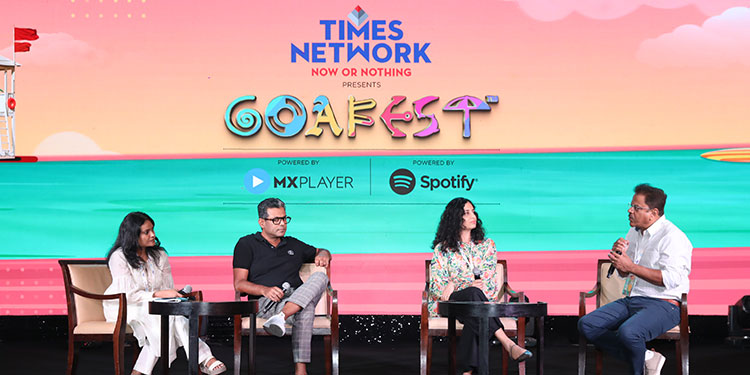“What we need is a fundamental transformation: of organisational structure, culture and deep-rooted behaviour. What we need to look at is how we are going to achieve this,” said Rohit Ohri, Chairman and CEO, FCB Ulka, moderating a discussion on fostering diversity, equality and inclusion (DEI) on day three of Goafest 2022.
The panel featured Suhela Khan, Country Program Manager, We Empower Asia, UN Women; Rathi Gangappa , CEO, Starcom India; and Dheeraj Sinha, CEO & Chief Strategy Officer – South Asia, Leo Burnett.
Ohri posed the question, “Why is APAC, the most diverse region in terms of culture and language, the most challenged on DEI?”
Khan cited statistics to underline that the root cause was ingrained social norms and gender bias in the region. While women do several times the share of unpaid care work as men globally, this skew is far higher in India, she noted, underlining that labour participation of women stands at 19 or 20pc, dropping steadily over the last few decades. (It was more than 26 pc in 2005).
On what needs to be done to effect a shift to a more equal, inclusive and diverse workplace, Gangappa said, “It’s first about wanting to make that change; about saying that we want to see more and more women in leadership positions. And it’s not about ticking a box (sic). It’s about women coming there on the merit of their talent and recognising that. I am seeing that change happen.”
“Nothing has done more damage to this business than (the) ‘Mad Men’ (culture). I hope those days never come back.” said Sinha.
The advertising business has been ‘notorious’, he contended, with women dropping off the workforce after they have a family. He added, “They need to feel respected, welcomed, loved. Apart from this, we need to co-opt men (into the DEI agenda). The worst thing that can happen is the other half (men) becoming passive-aggressive.”
Diversity Pays
On the impact of not having enough women in the workforce, Khan argued, “It’s so unfair that they don’t have access to equal activities and opportunities. And that impacts productivity.”
“The good thing is, this is at the top of the agenda for everyone now.” added Sinha. “It’s important that there is sensitivity across the board. Losing out on 50 pc of the talent pool is not good strategy. And once you appreciate the talent and what they bring to the table, you don’t need to look at this as policy,” he added.
In line with ‘The Superpower Within’ theme of this edition of Goafest, Ohri surmised, “When you recognise and create diversity and inclusion, that is when you unlock the superpower within.”

















